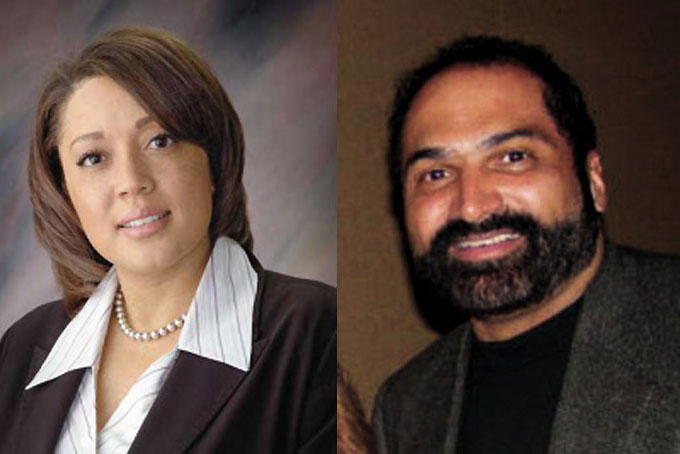
We were taken aback by an article that appeared in the New Pittsburgh Courier on February 5, 2015 that misrepresented The Pittsburgh Promise.
As chairman and treasurer of The Pittsburgh Promise, we wish to address some of the misstatements that appeared in the article. It is important for our community to know about the positive outcomes of The Promise, and how we are partnering with many others to help students achieve greater academic success.
In the article, for which we were not interviewed, some critics incorrectly asserted that Black kids are “an awkward afterthought” for us. This assertion could not be further from the truth. Every decision made by our Board and staff is preceded by a careful, lengthy, and impassioned discussion of how any recommendation impacts our most vulnerable kids, can be most inclusive, and can create the greatest opportunity for success.
In preparing to launch The Pittsburgh Promise in 2007, we learned a great deal from our friends in Kalamazoo, Michigan who launched their Kalamazoo Promise in 2005. We learned that a generous scholarship that rewards residency in a city and enrollment in an urban public school system not only benefits kids and families, but also has the potential to impact school reform and community development efforts. So, we embarked upon a major campaign in order to create opportunities for kids and promote the reform efforts of Pittsburgh Public Schools.
Executive Director Pittsburgh Promise
In order to better serve Pittsburgh’s kids and set them up for success, we made several changes to our program over the last six years. These include the following:
Rather than pay only for tuition and fees, we also added room and board and books. Kids from low income households often get their tuition and fees covered by federal and state grants, but they still need help with the rest of their educational costs.
We increased the maximum size of our scholarship from $5,000 per year to $10,000 per year, for a possible maximum of $40,000 over four years of college or technical school.
Since colleges nationwide counsel that the best predictor of college success is high school success, and they make their admissions decisions on this basis, we set a 2.50 Grade Point Average as our eligibility criteria.
Because we know that there are late bloomers in our midst, we created a safety net that captures students whose GPA is between 2.00 and 2.49, pays for them to go to the community college for one year, and, if they maintain a 2.00 GPA, can then transfer to any of the 300 eligible institutions in Pennsylvania.
We expanded our outreach staff so they can meet with students in kindergarten through high school, and their families, to keep alive a vision for higher education and what it takes to make that vision a reality.
We are proud of the results we have seen so far:
More than 5,500 students have received a Promise scholarship
2,494 are African American or Multiracial students
More than $56 million were granted in Promise scholarships
$23 million were granted to African American or Multiracial students
More than 1,000 students have already graduated and earned a degree, diploma or certificate
Nearly 400 graduates are African American or Multiracial students
In order to increase the rate of African American and Multiracial students who get a Promise scholarship, last week’s article offered only the following solution: Lower the standard for eligibility and eliminate the GPA and attendance requirements of 2.00 and 90 percent.
Not only is this misguided, it is also disappointing.
The recommendation is misguided because the large majority of current research points to high school GPA and attendance rates as the best predictors of college success. It is meaningless and perhaps damaging to provide a scholarship to students who are not ready for the demands of higher education, and whose likelihood of success is practically nonexistent.
The assertions in the article are disappointing because they imply that a 2.50 GPA is beyond the ability of African American and Multiracial students, and they further reinforce the hateful culture of low expectations that our society has of our urban youth, especially African American men.
The closing quote in the article suggests that if people have not been able to hit their targets, they should change them, even if they are the right targets. We prefer to try harder at helping our kids aim better, work smarter, stay longer, and dream bigger.
We know that there is much more work to be done. We know that some of our kids are lagging behind and need additional supports. We care deeply. We will continue to adapt and change in ways that help our kids, and expand the support services that they need. Additionally, we must all work together to strengthen the foundations that are needed in the homes, communities, and schools in order for our kids, all of them, to have every chance that every one of them deserves.
(Franco Harris is chairman and Candi Castleberry Singleton is treasurer, both board volunteers with The Pittsburgh Promise)
Read more:
Is the Pittsburgh Promise failing in its promise to Blacks?
https://newpittsburghcourieronline.com/2015/02/04/is-the-pittsburgh-promise-failing-in-its-promise-to-blacks/
Foul play against the Pittsburgh Promise
https://newpittsburghcourieronline.com/2015/02/12/foul-play-against-the-pittsburgh-promise/
Just Sayin’…Kennedy is absolutely right about the Pittsburgh Promise
https://newpittsburghcourieronline.com/2015/02/12/just-sayin-kennedy-is-absolutely-right-about-the-pittsburgh-promise/